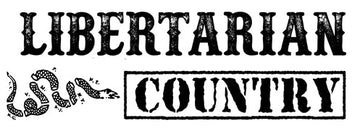Introduction: From Private Choice to Public Scrutiny
Once upon a time, your eating habits were your business. Maybe a nosy neighbor or a family member would make a comment, but culturally, people recognized that what you ate and how you lived was a personal matter. That changed dramatically after the passage of the Affordable Care Act (Obamacare). Suddenly, lifestyle choices became political talking points. People felt justified in questioning—and even condemning—what others put on their plates. Why? Because when the government collectivizes health care, it transforms private responsibility into a public burden.
Obamacare and the Shift in Cultural Attitudes
The Affordable Care Act was sold as a way to expand coverage and lower costs. But hidden within its framework was a fundamental philosophical shift: health became a collective responsibility. Once subsidies, mandates, and pooled insurance markets were introduced, individual health choices were no longer seen as isolated—they were tied directly to the costs and coverage of everyone else in the system.
This created a new cultural dynamic. If your bad diet, obesity, or lifestyle habits could theoretically raise premiums or increase government spending, suddenly your personal life was “fair game” for criticism.
The “Shared Responsibility” Myth
Supporters of Obamacare often framed health care as a “shared responsibility.” The idea was that since everyone benefits from medical care, everyone should share the cost. But in practice, this philosophy gave people moral permission to lecture, judge, and interfere.
It blurred the line between personal freedom and collective oversight. Where once your body and your health choices belonged to you, now they were considered part of a larger social contract—whether you agreed to it or not.
How Collectivism Breeds Interference
When something is collectivized, it naturally breeds control. If the government is paying for your food, people will argue that they should decide what kind of food you buy. If the government is covering health care, people will insist on having a say in how you live your life.
This is why debates over soda taxes, junk food bans on food stamps, or smoking restrictions always tie back to “public health.” The justification is always the same: your choices cost us money.
But that logic is a slippery slope. If taken to its extreme, the state could justify regulating everything from your diet to your sleep schedule in the name of cost reduction. That’s not freedom—that’s control.
A Libertarian Response: Individual Responsibility First
The libertarian answer to this problem is clear: your health is your responsibility, not the government’s and not your neighbor’s. When people are free to make their own choices—and bear the consequences of those choices—there’s no moral license for others to interfere.
Individual responsibility means reclaiming the right to live as you see fit without unsolicited moral lectures from strangers who think they’re paying for your doctor’s visits. It also means taking ownership of your health, because freedom and responsibility are inseparable.
Conclusion: Freedom Over Forced Oversight
Obamacare didn’t just change health policy; it changed the cultural conversation about health itself. By collectivizing costs, it created an environment where everyone feels entitled to comment on everyone else’s habits. That’s the hidden cost—one measured not in dollars, but in the erosion of personal freedom.
The solution isn’t more collectivism, more mandates, or more judgment. The solution is liberty—where your health is your choice, your cost, and your responsibility.



